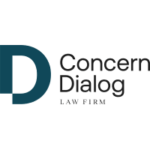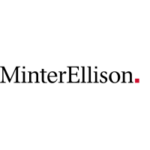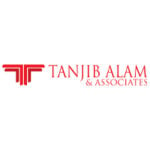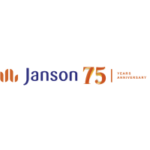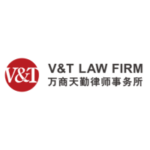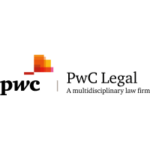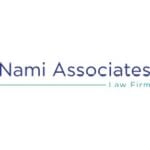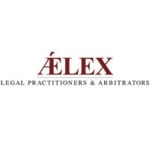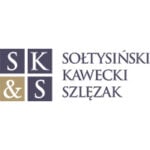-
What are the main methods of resolving disputes in your jurisdiction?
The Liechtenstein Code of Civil Procedure (Zivilprozessordnung; ZPO) provides in principle for the settlement of civil law disputes to be resolved before the ordinary State courts. In addition, the parties also have the option of having the dispute judged by an arbitration court. In disputes relating to foundations and trusts, Liechtenstein law also provides for supervisory measures in non-contentious proceedings. Furthermore, other forms of dispute resolution, in particular mediation, are open to the parties.
-
What are the main procedural rules governing litigation in your jurisdiction?
Commercial litigation in Liechtenstein is in particular governed by the following procedural rules: The organisation and jurisdiction of State courts are governed in the Liechtenstein Jurisdiction Act (Jurisdiktionsnorm; JN); the rules for contentious proceedings in civil courts are governed in the Liechtenstein Code of Civil Procedure (Zivilprozessordnung; ZPO); the rules for national and inter-national arbitration proceedings are governed in the 8th Section of the Liechtenstein Code of Civil Procedure (§§ 594 et seq. ZPO); the rules for the applicable law in international matters are gov-erned in the Liechtenstein International Private Law Act (Gesetz über das internationale Privatrecht; IPRG); the enforcement of judgments as well as of arbitral awards and preliminary remedies is governed in the Liechtenstein Execution Act (Exekutionsordnung; EO).
-
What is the structure and organisation of local courts dealing with claims in your jurisdiction? What is the final court of appeal?
All civil law actions must be brought before the court of first instance, the so-called Princely Court of Justice (Fürstliches Landgericht). Irrespective of whether the court of first instance issues a judgment (Urteil) or executes a resolution (Beschluss), the legal remedy is directed to the Princely Appeal Court (Fürstliches Obergericht) as second instance in civil matters. The Princely Appeal Court consists of three senates, whereby the decision is made by the chairman of the senate, an assessor and a senior judge in each case. Judgments of the Princely Appeal Court can be appealed against to the Princely Supreme Court (Fürstlicher Oberster Gerichtshof). This is generally inadmissible if the value in dispute in property disputes is less than CHF 50,000 and there is a fully confirming decision of the Princely Court of Appeal. The Princely Supreme Court is the last in-stance of ordinary jurisdiction in Liechtenstein and consists of two senates. If the claimant further alleges that one of his constitutionally guaranteed rights or one of his rights guaranteed by international agreements has been violated by a final decision or order of public authority, as an extraordinary remedy the right of appeal (individual complaint) is open to the Liechtenstein State Court (Staatsgerichtshof). The Liechtenstein legislature has accordingly provided for the assessment of civil disputes through three ordinary courts of law and the State Court as Constitutional Court.
-
How long does it typically take from commencing proceedings to get to trial in your jurisdiction?
Liechtenstein civil procedure law does not provide for a fixed timetable for proceedings, and the duration of dispute resolution is at the discretion of the court and the parties themselves. Among other things, the court is responsible for scheduling the first hearing, at which settlement discussions are held and the court determines the subject matter of the dispute by means of an order for evidence. At the first hearing, the defendant may apply for security to cover its costs of the proceedings (actor’s security) if the plaintiff is not domiciled in Liechtenstein or is a legal entity. Depending on the court’s workload, it usually takes two to three months from the filing of the claim to the first hearing.
-
Are hearings held in public and are documents filed at court available to the public in your jurisdiction? Are there any exceptions?
The court files and documents filed by the parties are only accessible to the parties of the corresponding proceedings, but not to the public. Some of the judgments of the Liechtenstein courts are published in an anonymised form on www.gerichtsentscheide.li and can be viewed by the public. In contrast, the court hearings are public. However, the public may be excluded for various reasons, namely if the ordre public appears to be endangered by it or if the legal dispute revolves around facts of family life.
-
What, if any, are the relevant limitation periods in your jurisdiction?
In Liechtenstein, limitation periods are not a procedural issue but a matter of substantive law. The general limitation period is currently 30 years (although there are efforts to reduce this period to ten years), unless there are specific legal exceptions. The most important deviating limitation periods are as follows: three years for claims for damages and five years for the delivery of goods, the performance of work or other services in the context of commercial, business or other business transactions, as well as for other civil law claims (e.g. wage claims, rent and lease payments, etc.). The limitation period begins at the point in time when the right could have been exercised for the first time, i.e. when the contractual partner (debtor) and the claim (damage) are known. Furthermore, the limitation period is not observed by the courts ex officio, but must be asserted by the defendant.
-
What, if any, are the pre-action conduct requirements in your jurisdiction and what, if any, are the consequences of non-compliance?
In Liechtenstein, there is no legal requirement to initiate any pre-action procedures in order to start a trial. However, it is recommended and common practice to ask the debtor to fulfil his obligation before commencing legal proceedings, otherwise the court may order the claimant to bear the court fees and the defendants’ legal costs if the latter immediately acknowledges the claim in the first hearing. According to the applicable procedural law, it is also possible to request a summons to the opponent prior to bringing an action and for the purpose of the settlement attempt (prätorischer Vergleich). Under Liechtenstein law, there is no pre-action disclosure. If a party is not in possession of the relevant evidence necessary to prove its claims, it can either file an action by stages (Stufenklage) to initially request the necessary information and documents from the defendant in order to then determine the claim amount. On the other hand, the claimant can request for evidence production during the proceeding, namely of “joint documents” of the parties that govern the mutual legal relationship. However, in comparison to document production possibilities in common law jurisdiction, this is rather limited in a Liechtenstein State court proceeding.
-
How are proceedings commenced in your jurisdiction? Is service necessary and, if so, is this done by the court (or its agent) or by the parties?
Civil proceedings are initiated by filing a lawsuit with the court of first instance, the Princely Court of Justice. An action is officially pending when it is received by the court. All pleadings to the court must be written in German. The statement of claim must contain the following information: Designation of the court; name and address of the parties, party status and, if applicable, name of the representatives; subject matter and amount in dispute; relief sought and the facts and evidence on which the claim is based. Upon receipt of the statement of claim, the court checks the above-mentioned minimum requirements and forwards the claim to the defendant if the requirements are met and after charging the court fee. Within Liechtenstein, the action is served by the court by post. An electronic communication system does not yet exist in Liechtenstein. If the defendant is located abroad, the court must effect service by way of legal assistance and in accordance with the laws or other legal provisions of that country. If both parties are represented by a lawyer at a later stage of the proceedings, the pleadings can also be served on the other party by direct service, i.e. without the involvement of the court, e.g. by a messenger or by electronic mail.
-
How does the court determine whether it has jurisdiction over a claim in your jurisdiction?
As soon as an action is brought before the Princely Court of Justice, the court examines its international jurisdiction ex officio by applying the Liechtenstein jurisdictional standard, as Liechtenstein is not a member of a corresponding international agreement. When assessing the question of jurisdiction, the court generally only relies on the information provided by the plaintiff, unless the court is already aware that this information is incorrect. The jurisdiction standard assumes that the Princely Court of Justice has jurisdiction for all actions if the defendant is domiciled or has its registered office in the Principality of Liechtenstein. In addition, the rules on jurisdiction are linked to other domestic jurisdictions, e.g. if the subject matter of the dispute or the defendant’s assets are located on Liechtenstein territory or the place of fulfilment is in Liechtenstein. In principle, the parties are free to agree on the place of jurisdiction.
-
How does the court determine which law governs the claims in your jurisdiction?
In order to clarify the question of the applicable law in international situations, the first question is whether bilateral treaty provisions exist. If there are none, the court applies the lex fori rule. Liechtenstein’s conflict of law rules are codified in the International Private Law Act (Gesetz über das internationale Privatrecht; IPRG). Liechtenstein law in general acknowledges the choice of law by the parties. However, in a situation with no international element, the court will apply national substantive law. Where conflict of law rules call for the application of foreign law, Liechtenstein must apply such foreign law unless it would produce a result contrary to public order or good morals, in other words contrary to fundamental values of the Liechtenstein legal system.
-
In what circumstances, if any, can claims be disposed of without a full trial in your jurisdiction?
The plaintiff who submits their claim to the court of first instance must first pay a court fee, unless they can claim exemption from the fee. If the fee is not paid within four weeks of receiving the court’s request for payment, the court will declare the action withdrawn. Furthermore, the court will dismiss an action ex officio before the first hearing if it does not fulfil the minimum procedural requirements (e.g. jurisdiction of the court, capacity to be a party, lis pendens, etc.). Due to a lack of formal requirements, the court first requests the plaintiff to rectify the statement of claim within a certain period of time. In addition, the defendant can apply for early dismissal of the claim if the claim is already time-barred or inconclusive or if there are no procedural requirements (e.g. lack of jurisdiction). If the defendant does not appear at a scheduled court hearing, the plaintiff can apply to the court for a judgement by default (judgement by default). The court also has the option of issuing interim and partial judgements or attempting an amicable settlement of the legal dispute or reaching an agreement on individual points in dispute at the hearing.
-
What, if any, are the main types of interim remedies available in your jurisdiction?
In order to protect the enforceability of a claim or to protect one party from irreparable damage, an application may be made for interim measures. The application can be filed either together with the statement of claim or beforehand, and also in the course of the proceedings. The Liechtenstein Enforcement Act (Exekutionsordnunug; EO) provides for two types of interim remedies: 1) The security of monetary claims (Sicherungsbot) and 2) the security of other claims (Amtsbefehl). A security reason for monetary claims also exists if the debtor has no fixed domicile, makes arrangements to escape or flees with the intention of evading the fulfilment of his obligations, does not reside in Liechtenstein or if the execution order would otherwise have to be enforced abroad. In order to secure the monetary claims, the court may order: the seizure, custody and administration of movable assets; the legal deposit of money; a judicial prohibition on the sale or pledging of movable assets; a judicial prohibition directed towards third parties; and a judicial prohibition on transferring or mortgaging immovable property. In addition, to secure other claims or rights, other means such as establishing the right of retention or ordering the debtor to refrain from any action adversely affecting the claim are available.
-
After a claim has been commenced, what written documents must (or can) the parties submit in your jurisdiction? What is the usual timetable?
After filing the lawsuit and paying the court fees, the court serves the claim on the defendant. At the same time, the court sets a deadline (usually four weeks) for the defendant to file a response. However, the filing of a response is not mandatory. Failure to file a response, or filing it after the deadline set by the court, does not result in a default judgment, nor does it exclude the defendant who appeared at the hearing from making further submissions. If the defendant files a response, the document shall be served on the plaintiff. The court shall then convene a first hearing. In preparation for this hearing, the parties are free to submit a further written statement («vorbereitender Schriftsatz»). This statement must be received by the court and the opponent at least one week before the hearing. The scheduled hearing may serve to conduct settlement discussions or to raise the objections of inadmissibility of the legal proceedings, lack of jurisdiction of the court or, for example, the pendency of the dispute. In addition, the defendant may file an application for security for the costs of the proceedings at the first hearing, if the plaintiff does not have its domicile in Liechtenstein. If no objections are raised by the defendant, the court can decide directly which evidence it wishes to take and then take it directly.
-
What, if any, are the rules for disclosure of documents in your jurisdiction? Are there any exceptions (e.g. on grounds of privilege, confidentiality or public interest)?
In Liechtenstein, there is generally no pre-trial evidence procedure. However, such a procedure can take place upon request if, for example, there is a risk that the evidence will no longer exist at a later point in time and this could lead to problems of proof. Otherwise, evidence is taken and documents are submitted during the course of the proceedings. The court may order the production of documents by a party in certain circumstances. If a party relies on a document to substantiate its claims, it must submit it to the court, unless the court itself is obliged to submit the document. The documents must be submitted in such a way that both the court and the other party can view the entire content of the documents. However, if only part of the document is relevant to the legal relationship to be assessed in the case at hand, the court may order that only these passages be submitted to the other party. If a document relevant to the evidence is in the hands of the opposing party, the court may order the opposing party to produce the document. However, if this document relates to family life, if the opposing party violates a duty of honour by producing the document, if the production of the document entails the risk of criminal prosecution or if the production of the document would violate a state-recognised duty of confidentiality (e.g. attorney-client privilege, fiduciary privilege, banking secrecy, etc.), the production of the relevant document may be refused. However, a party may not refuse to produce the documents – even if the above criteria are met – if the party itself has referred to the document for evidentiary purposes, if it is obliged under civil law to surrender or produce the document or if it is a ‘joint document’, i.e. a document that records a mutual legal relationship or was drawn up in the interests of both parties. If the document in question is not in the hands of the opposing party, but of a third party, the latter may also be obliged to hand it over, either if the substantive law obliges him to do so or if the document is to be regarded as a joint document of the parties. Beyond this, however, third parties are not obliged to produce documents in their possession.
-
How is witness evidence dealt with in your jurisdiction (and in particular, do witnesses give oral and/or written evidence and what, if any, are the rules on cross-examination)? Are depositions permitted?
The Liechtenstein Code of Civil Procedure stipulates that evidence which is relevant to the court must be taken in the course of the hearing before the court. Witnesses must therefore testify orally before the court, however, the court may decide to conduct the examination of witnesses by videoconference. Depositions, written statements or affidavits are not permitted. Liechtenstein law distinguishes between witness testimony and the testimony of parties to the effect that certain rules regarding the hearing of witnesses do not apply to the hearing of parties. Witnesses with a domestic domicile are obliged to appear before the court. If their domicile is abroad, they are free to appear or otherwise will be heard by way of mutual legal assistance. Any witness is obliged to testify and to tell the truth. Witnesses have the right to refuse to testify with regard to certain persons or matters. For example, persons summoned as witnesses may refuse to testify on questions whose answers would expose the witness, his spouse or close relatives to criminal prosecution, or if they would violate a duty of secrecy recognised by the state (e.g., secrecy of lawyers, trustees, bankers etc.). In a witness examination, the judge takes the lead and questions every witness individually and in the absence of other witnesses. Thereafter, the parties have the right to ask further questions to the witness. Contradicting witnesses may be confronted with each other. In certain cases, a witness may testify in front of a delegated judge, by the use of video conference or in cases of urgency already before the hearing. Contrary to other legal systems, the lawyer may only contact witnesses if this is indispensable for the preparation of the proceedings. In doing so, the witness must not be influenced in any way, especially it is not permitted to give instructions or rules of conduct to the witnesses. It is only permitted to inform the witnesses of their legal rights and obligations, such as the abovementioned right to refuse to testify. An actual witness preparation, as known in other jurisdictions, is inadmissible.
-
Is expert evidence permitted in your jurisdiction? If so, how is it dealt with (and in particular, are experts appointed by the court or the parties, and what duties do they owe)?
If the court or tribunal decides that the taking of evidence requires the presence of an expert, the court or tribunal shall appoint one. This power shall not be affected by a waiver by the parties. The expert shall act as an assistant to the judge, shall be bound to the court and must be impartial. If the parties disagree with the choice of expert, they may give reasons for their objection (e.g. bias). If the objection is accepted by the court, another expert shall be appointed. The judge asks the appointed expert a series of questions and instructs them to prepare a written report within a specified period. After receiving the written report, the parties have the right to question the expert in an oral hearing. Here too, the court may decide to conduct the hearing of the expert by video conference. Under the Liechtenstein Civil Procedure Code, expert opinions from court-appointed experts are a special type of evidence and have a higher probative value. Expert opinions from experts appointed by the parties are also admissible, but have less probative value than those appointed by the court, as they are private expert opinions. However, the court-appointed expert must at least address their findings in his own expert opinion.
-
Can final and interim decisions be appealed in your jurisdiction? If so, to which court(s) and within what timescale?
If the Princely Court issues a (provisional) judgment, the losing party may lodge an appeal with the Princely Court of Appeal within four weeks of service. Procedural errors, deficiencies in the presentation of the facts and deficiencies in the legal assessment may be challenged. The appeal must be served on the other party, who has four weeks to respond to the appeal. An appeal may be lodged against the judgment of the Princely Court of Appeal within four weeks of its delivery to the Princely Supreme Court (‘appeal’). Only procedural errors in the second instance and points of law may be challenged. However, factual errors can no longer be raised. Furthermore, an appeal is generally inadmissible if the amount in dispute is less than CHF 50,000 and the Princely Court of Appeal has fully upheld the judgment of the court of first instance. Exceptions arise, for example, if the AHV-IV-FAK decides as the court of first instance, in the area of matrimonial law, or if a reservation of legal force is appropriate. The law provides, however, that in certain cases the decision is not issued in the form of a judgment but in the form of a ruling. This is the case, for example, with interim injunctions. An appeal may be lodged against such a decision within 14 days of its delivery to the Princely High Court (‘appeal’). Under certain conditions, the unsuccessful party may lodge an appeal against the decision with the Princely Supreme Court within 14 days (‘appeal on points of law’). In such cases, the opposing party may also comment on the written submissions. However, the ZPO expressly provides that certain court orders cannot be challenged separately, e.g. procedural orders.
-
What are the rules governing enforcement of foreign judgments in your jurisdiction?
Liechtenstein has been a member of the European Economic Area (EEA) since 1995. However, the small State has not yet acceded to the Brussels Convention on Jurisdiction and Enforcement or the Lugano Convention. The recognition and enforcement of foreign judgments is therefore determined purely by national law, namely by the Liechtenstein Enforcement Act (Exekutionsordnung; EO). Pursuant to the Enforcement Act, foreign judgments will be enforced by Liechtenstein courts only if – and to the extent that – reciprocity with the foreign country has been guaranteed by government policy statements or international treaties. Only with Austria and Switzerland Liechtenstein has concluded applicable enforcement treaties, but not with other countries. However, foreign judgments can at least be recognized as authentic instruments, which lead to a facilitation in the payment order procedure (Schuldentriebsverfahren). After an objection against a payment order, the creditor may apply for an annulment of such objection in a summary proceeding called legal opening procedure (Rechtsöffnungsverfahren), where the original foreign judgment is regarded as an official document evidencing the debt. In contrast, Liechtenstein acceded to the New York Convention on the recognition and enforcement of foreign arbitral awards. Therefore, awards rendered by an arbitration tribunal in Liechtenstein can be enforced in all contracting states and therefore almost worldwide, and that all arbitral awards issued in a contracting state are in turn recognized and enforced in Liechtenstein.
-
Can the costs of litigation (e.g. court costs, as well as the parties’ costs of instructing lawyers, experts and other professionals) be recovered from the other side in your jurisdiction?
In principle, each party bears the costs of the proceedings itself. The claimant has to prepay the court fees. If the costs are incurred jointly by both parties or are undertaken by the court in the interest of both parties, they must be paid jointly. The losing party must then reimburse its opponent for all costs caused by the conduct of the proceedings, to the extent that these were necessary for the appropriate legal prosecution or legal defence. The court shall assess which costs are deemed necessary at its discretion. Reimbursement is granted for court fees, expenses (e.g., for interpreters, witnesses, experts, traveling expenses, etc.) and legal fees. In consequence, if neither of the two parties are entirely successful, the costs are to be set off against each other or shared proportionately. Even in such cases the court may order a party to reimburse the entire costs incurred by the opponent if the opponent has only been unsuccessful with a relatively small part of his claim, the assertion of which has not given rise to any particular costs. The reimbursement of legal fees is based on the official lawyer’s tariff (Rechtsanwaltstarifgesetz, RAG; Rechtsanwaltstarifverordnung, RATV), irrespective of the arrangement between a lawyer and its client. Therefore, the actual lawyer’s costs of a prevailing party are usually higher than the amount reimbursed. The decision of the court of first instance on costs may be appealed to the next instance without simultaneously challenging the decision given in the main proceedings. The second instance then makes the final decision, excluding any further appeal. If the matter in dispute is not terminated by judgment, but the parties reach a settlement, the costs are deemed to be mutually waived, unless otherwise agreed.
-
What, if any, are the collective redress (e.g. class action) mechanisms in your jurisdiction?
Liechtenstein law does not explicitly provide for collective redress, such as class actions. However, the law allows claimants to assign their claims to a third party, usually a specific association, with the intention that this association raises these claims in one lawsuit on behalf of the assignors against the defendant(s).
-
What, if any, are the mechanisms for joining third parties to ongoing proceedings and/or consolidating two sets of proceedings in your jurisdiction?
In civil proceedings, it is possible for third parties to participate in proceedings («Nebenintervention»). In an intervention, a previously uninvolved third party is formally notified of a legal dispute pending between two parties by means of a third-party notice. The main party thereby invites the third party to support it in the pending proceedings. The intervening party does not itself become a party to the proceedings. In order to participate in the proceedings at all, he must be able to demonstrate a legal interest in the outcome of the legal dispute for one of the parties. He is then entitled to assert means of attack and defence in the interests of the main party, offer evidence and perform all other procedural acts. The intervener may intervene at any time until the decision in the main proceedings has become final. The consolidation of two or more proceedings that are pending before the same court and in which the same parties are involved is possible for reasons of cost and time savings. The parties cannot appeal against such a decision. As a rule, a joint judgement is issued, but it is also possible for a final judgement to be issued separately for each of the proceedings.
-
Are third parties allowed to fund litigation in your jurisdiction? If so, are there any restrictions on this and can third party funders be made liable for the costs incurred by the other side?
Liechtenstein law does not provide statutory rules governing third-party funding. Therefore, there are no restrictions regarding arrangements between funders and litigants. There is no obligation to disclose funding arrangements either. However, if lawyers act as third-party funders, the general professional restrictions apply, since contingency and conditional fee arrangements (quota litis), which give a part of the proceeds to the lawyer, are prohibited between lawyers and their clients.
-
What has been the impact of the COVID-19 pandemic on litigation in your jurisdiction?
At the beginning of April 2020, the Liechtenstein Parliament passed a law on accompanying measures in the administration and judiciary in connection with the coronavirus (COVID-19-VJBG). This allowed all procedural deadlines in court and administrative proceedings whose initial triggering event occurred after the law came into force or which had not yet expired when the law came into force to be extended upon request for as long as the law remains in force. Hearings and oral proceedings before the courts were only possible after careful consideration of all circumstances if the continuation of the proceedings was necessary and the public interest in preventing and combating the coronavirus did not outweigh individual interests. These provisions were initially valid until 15 June 2020, but were extended several times until 30 September 2021 due to the ongoing pandemic. Due to the effects of the pandemic, such as travel restrictions, quarantine regulations or staff absences due to illness, the provisions of the COVID-19 VJBG came back into force on 19 November 2021 and were valid until 30 June 2022.
A provision has now been added to the Code of Civil Procedure allowing witnesses, parties or experts to be heard using technical aids, i.e. in particular by video conference.
-
What is the main advantage and the main disadvantage of litigating international commercial disputes in your jurisdiction?
The Liechtenstein courts are very efficient in international commercial disputes. According to recent statistics, the majority of court cases have been settled within a time period of three to six months with the court of first instance and within a time period of three months with the Appeal Court, the same applies for the Supreme Court. However, due to the lack of international treaties, judgments rendered in Liechtenstein may not be automatically recognized and enforced abroad, except in Austria and Switzerland.
-
What is the most likely growth area for commercial disputes in your jurisdiction for the next 5 years?
In our opinion, the most likely growth area was and will be in the field of foundation and trust law disputes connected with international commercial transactions. We also see potential growth areas in the field of banking and insurance.
-
What, if any, will be the impact of technology on commercial litigation in your jurisdiction in the next 5 years?
Liechtenstein has not yet established an e-government or electronic communication system with the courts. In our opinion, this field will be developed in order to ease the communication with the courts and to enable that court filings can be made electronically.
Liechtenstein: Litigation
This country-specific Q&A provides an overview of Litigation laws and regulations applicable in Liechtenstein.
-
What are the main methods of resolving disputes in your jurisdiction?
-
What are the main procedural rules governing litigation in your jurisdiction?
-
What is the structure and organisation of local courts dealing with claims in your jurisdiction? What is the final court of appeal?
-
How long does it typically take from commencing proceedings to get to trial in your jurisdiction?
-
Are hearings held in public and are documents filed at court available to the public in your jurisdiction? Are there any exceptions?
-
What, if any, are the relevant limitation periods in your jurisdiction?
-
What, if any, are the pre-action conduct requirements in your jurisdiction and what, if any, are the consequences of non-compliance?
-
How are proceedings commenced in your jurisdiction? Is service necessary and, if so, is this done by the court (or its agent) or by the parties?
-
How does the court determine whether it has jurisdiction over a claim in your jurisdiction?
-
How does the court determine which law governs the claims in your jurisdiction?
-
In what circumstances, if any, can claims be disposed of without a full trial in your jurisdiction?
-
What, if any, are the main types of interim remedies available in your jurisdiction?
-
After a claim has been commenced, what written documents must (or can) the parties submit in your jurisdiction? What is the usual timetable?
-
What, if any, are the rules for disclosure of documents in your jurisdiction? Are there any exceptions (e.g. on grounds of privilege, confidentiality or public interest)?
-
How is witness evidence dealt with in your jurisdiction (and in particular, do witnesses give oral and/or written evidence and what, if any, are the rules on cross-examination)? Are depositions permitted?
-
Is expert evidence permitted in your jurisdiction? If so, how is it dealt with (and in particular, are experts appointed by the court or the parties, and what duties do they owe)?
-
Can final and interim decisions be appealed in your jurisdiction? If so, to which court(s) and within what timescale?
-
What are the rules governing enforcement of foreign judgments in your jurisdiction?
-
Can the costs of litigation (e.g. court costs, as well as the parties’ costs of instructing lawyers, experts and other professionals) be recovered from the other side in your jurisdiction?
-
What, if any, are the collective redress (e.g. class action) mechanisms in your jurisdiction?
-
What, if any, are the mechanisms for joining third parties to ongoing proceedings and/or consolidating two sets of proceedings in your jurisdiction?
-
Are third parties allowed to fund litigation in your jurisdiction? If so, are there any restrictions on this and can third party funders be made liable for the costs incurred by the other side?
-
What has been the impact of the COVID-19 pandemic on litigation in your jurisdiction?
-
What is the main advantage and the main disadvantage of litigating international commercial disputes in your jurisdiction?
-
What is the most likely growth area for commercial disputes in your jurisdiction for the next 5 years?
-
What, if any, will be the impact of technology on commercial litigation in your jurisdiction in the next 5 years?
